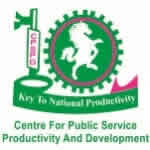|
|
Infrastructural Project Finance ConferenceBy: Centre for Public Service Productivity and DevelopmentUnited Arab Emirates 17 - 21 Nov, 2025 5 days
USD 4,500Get 5.00% off
|
Venue: Dubai
Infrastructure is moving up the global policy agenda. Efficient and effective infrastructure is critical to economic competitiveness and growth, and governments faced with the task of plugging infrastructure gaps and maintaining or modernizing nationally critical infrastructure, must turn to private sector investors to help meet the costs.
Private capital is available to support projects; however political and regulatory risks are affecting investors’ confidence across developing and industrialized economies. As a result, despite the potential for infrastructure investments to generate long-term returns, actual levels of investment remain relatively low.
This conference will bring together policy, investment, and infrastructure project professionals to focus on the challenge of depoliticizing infrastructure decision-making processes and reducing risks to help unlock investment. Expert speakers and thought leaders will assess policy challenges for investors, the regulatory and risk-sharing landscape, and what can be done to move infrastructure from a series of ambitious visions to economic reality.
Stream 1: Public-Private Partnerships (PPPs)
In this stream, the event will focus on how to establish viable PPP mechanisms, attract more funds by a mix of private and public sector funding, formulate a comprehensive legal framework for the administration of PPPs and learn how to cater to the various challenges faced when adopting this financing model. The event will also be highlighting on what is being done to establish an attractive and enabling environment for PPPs to encourage private sector involvement and develop market-credible projects to accelerate infrastructure development.
Stream 2: Alternative Financing
In this stream the event will feature other mechanisms of project financing to fill the crucial gap in financing for mega infrastructure developments and the need to find innovative ways to ‘unlock’ the funding process in Africa. Alternative funding from Bonds, Private equity investment funds, Venture capital funds, pension funds, mezzanine financing and most importantly Development Finance Institutions DFI’s (African Development Bank- AFDB, Development Bank of South Africa DBSA, IDB Capital, Tanzania Investment bank, Uganda development bank etc.) is becoming increasingly important in Africa.
Conference Profile
Session One | The ‘Politics’ of Infrastructure
This opening session will focus on infrastructure policy decisions and the challenge of reducing political risk and channeling investment into nationally critical infrastructure projects.
- Can the ‘politics’ be entirely removed from decisions about infrastructure projects? Where is the balance between a technocratic and a democratic approach to infrastructure decisions?
- What is the best way to manage responsibilities for infrastructure policy between local, regional, national, and supra-national layers of decision making?
- What policy frameworks are needed to ensure projects with long-term economic and social value can access sufficient resources?
- How should infrastructure be funded and how can costs be shared? To what extent are national infrastructure projects ‘public goods’, requiring government guarantees? What are the optimum roles of the public and private sector?
Session Two | Infrastructure, Investment and Growth
This session will assess how, in a high interest rate climate and with highly liquid capital markets, investment into infrastructure projects can be increased in order to stimulate economic growth.
- How can Africa increase the proportion of economic output spent on infrastructure to plug the projected investment shortfalls across key sectors?
- How will the EU Investment Plan achieve its infrastructure investment goals and where will the money come from?
- What can policymakers learn from each other about managing policy risks in infrastructure projects?
- How can quasi-public-sector financial institutions work together, given their differentiated roles, and complement available private sector funding for infrastructure?
- What are the main current G20 trends on investment strategies? How can we promote infrastructure investment financing by institutional investors on an international level?
- As new financial institutions such as the Asian Infrastructure Investment Bank and the New Development Bank become established, what role will they play in global infrastructure funding?
Session Three | Finance and Funding Models
This session will look at financing models and what can be done to facilitate and co-ordinate investment into infrastructure projects.
- What is new in infrastructure finance? What innovative funding models are being developed and to what extent can they be replicated across policy jurisdictions?
- As investors search for yield and long-term returns, will good projects always find their way to being financed?
- What is the most effective way to combine public and private investment to maximize the social value of infrastructure as well as returns for private investors?
- How is the use of public-private partnerships (PPP) evolving? In PPP arrangements, how can the risks faced by private-sector parties when dealing with public agencies be better managed?
- Given the complexity of infrastructure projects, how can the European Capital Markets Union proposals incentivize both institutional and retail investors to invest in infrastructure projects?
Session Four | Meeting the Demand for Projects
This session will focus on the mismatch between the capital available for investment and the relative dearth of bankable projects and how to evaluate projects to target sources of capital.
- Where are the ‘shovel ready’ projects and how can the gap between available capital and well designed and well-structured deals be addressed?
- What is needed to create a bankable pipeline of projects across different sectors?
- How can initiatives tackle the infrastructure project and increase the pipeline of viable deals? Will the establishment of the Global Infrastructure Hub reduce barriers to investment and in its aim to match investors to projects?
- How can mechanisms for project selection be improved? How can the right choice of projects be encouraged, to reduce inefficiencies in the allocation of resources?
Session Five | Panel Discussion: Taking a Strategic Approach to Infrastructure
This discussion will explore ways to develop policy and regulatory frameworks that can help reduce uncertainties for investors and match capital to nationally important infrastructure projects.
- How can governments demonstrate and communicate a clear and credible vision for national infrastructure?
- To reduce fragmentation and responsibility for the provision of different infrastructure across different bodies, should infrastructure decision making become more centralized?
- Is it possible to develop consistent, predictable regulatory frameworks that transcend changes in government?
- Are high levels of idiosyncratic risk an inevitable characteristic of infrastructure projects?
Who Should Attend?
Chairmen, Presidents, CEOs, MDs, VPs, Directors, GMs, and Heads of:
- Railway Development Companies
- Road and Highway Development Companies
- Construction Engineering and Management
- Transportation Engineering and Planning
- Maintenance and Rehabilitation
- Infrastructure and Construction Companies
- Project Management
- Building Material Suppliers
- Industry Investors and Financiers
- Concessionaires
- Civil and Transport Engineering firms
- Rail Operators, Suppliers, Manufacturers
- Facilities Maintenance Department
- Business Development
- Financial and Legal Advisors
- Institutional investors
Local Government, Government Departments, Agencies and Authorities:
- Ministry of Transportation
- Ministry of Public Works
- Ministry of Road Transport
- Ministry of Railways
- Ministry of Finance
- PPP Units
- National Development Agencies Planning and Development Departments
- Civil and Transportation Departments
- Business Development Department
- Economic Planning Units
- Projects Department
- Special Projects Unit
- Federal, State and Local Councilors
- Regional Development Agencies
- Policy and Project Directors and Officers
Consultants, Project Managers and Contractors involved in:
- Road and Highway Developments
- Railway Developments
- Urban Mass Transit Projects
- Environmental Projects
- Business Development Department
- Engineering Firms – Civil, Structural, Construction, Transportation Infrastructure
- Project Management Companies
- Legal Firms
- Construction
- Commercial Business Developers
- Facilities Maintenance
- Construction
- Transportation Engineering and Planning
- Maintenance and Rehabilitation
Banks, Financing Institutions, Multilaterals and Export Credit Agencies:
- Heads of Project Finance
- Heads of Corporate Finance
- Heads of Structured Finance
- Treasurers
- Project Managers
- Financial / Industry Analysts
- Chief Credit Officers
- Chief Investment Officers / Investment Specialists
- Economists
Accommodation: This Conference is non-residential. Participants are to lodge in hotels of their choice near the conference center. A list of these Hotels will be provided on request.
Course Booking
Please use the “book now” or “inquire” buttons on this page to either book your space or make further enquiries.
| Dubai | Nov 17 - 21 Nov, 2025 |
| USD 4,500.00 | |
Dr Chris Egbu 08023194131
Related Courses
 The Role of Engineers and Technical Officers as Business Influencers and Managers Course
The Role of Engineers and Technical Officers as Business Influencers and Managers Course
3 days, 05 - 07 May, 2026
Centre for Public Service Productivity and Development
 Data Analysis and Decision-Making Workshop
Data Analysis and Decision-Making Workshop
3 days, 14 - 16 Apr, 2026
Centre for Public Service Productivity and Development
 Quality Education: Key Role of School Administrators Course
Quality Education: Key Role of School Administrators Course
4 days, 10 - 13 Mar, 2026
Centre for Public Service Productivity and Development
 Collective Bargaining as a Tool for Organisation's Growth and Development Course
Collective Bargaining as a Tool for Organisation's Growth and Development Course
3 days, 19 - 21 May, 2026
Centre for Public Service Productivity and Development



